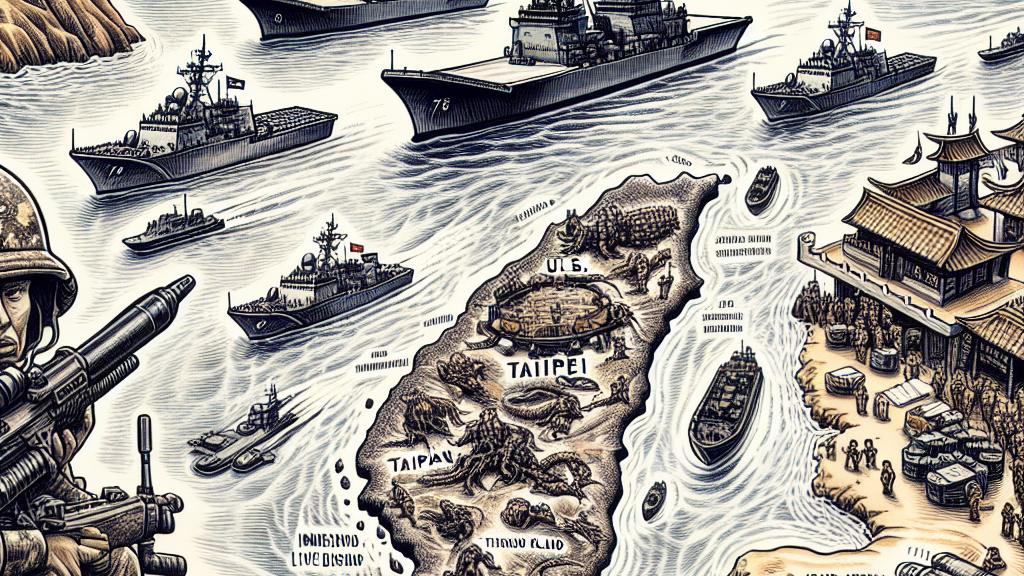China's Planned Live-Fire Drills Amidst Regional Tensions
Overview
- China is preparing for live-fire drills in the Taiwan Strait, escalating military tensions following the passage of U.S. and Canadian warships.
- These exercises act as a stark warning to Taiwan, signaling Beijing's response to perceived defiance against its sovereignty claims.
- Heightened military activities raise concerns about the potential for conflict, drawing increased international attention to this critical flashpoint.

Recent Military Developments in Taiwan Strait
The tension in the Taiwan Strait is palpable, illustrated by China's imminent live-fire drills scheduled for Tuesday. This aggressive move comes just days after U.S. and Canadian naval vessels transit the area, which China has labeled as provocative. The drills will take place near Niushan Island, a location alarmingly close to Taipei, at just 165 kilometers away. Such a setting positions the exercises to demonstrate not only military strength but also a willingness to assert control over the contested waters. This pattern of military escalation reflects a broader strategy by China; past events, including comprehensive military maneuvers, suggest a determination to fortify its claims over Taiwan, thus creating a complex web of brinkmanship that is difficult to navigate.
Impact of Military Drills on Taiwan's Security
Taiwan's response to China's military posturing is characterized by a steadfast commitment to its sovereignty. Recently, China utilized a staggering 125 aircraft for drills that effectively encircled Taiwan, showcasing its military prowess and intent. In retaliation, Taiwan's Ministry of National Defense has proactively deployed naval assets and conducted surveillance operations to monitor Chinese movements. For instance, upon detecting incursions into its air defense identification zone, Taiwan maintained a high level of readiness, signaling its unwavering resolve. Statements from Taiwanese officials emphasize their commitment to countering these threats, reflecting a nation that, despite its smaller size, refuses to be intimidated. Taiwan's determination shines through as it bolsters its defenses, reiterating that it will face adversities head-on.
Geopolitical Implications and Future Outlook
The military exercises unfolding in the Taiwan Strait are not solely a matter of regional significance; they embody the larger, intricate dynamics of U.S.-China relations. Dialogue between President Biden and President Xi has aimed at averting conflict, yet the continued military drills indicate a persistent competitive atmosphere. Both powers are entangled in a complex game of strategy and deterrence, where military readiness plays a crucial role in asserting influence. The key question remains: Can dialogue lead to a de-escalation of these tensions, or will the risk of confrontation escalate? As the global community observes these developments, the implications for regional stability and international relations are profound, underlining the urgent need for diplomatic efforts alongside military vigilance.

Loading...